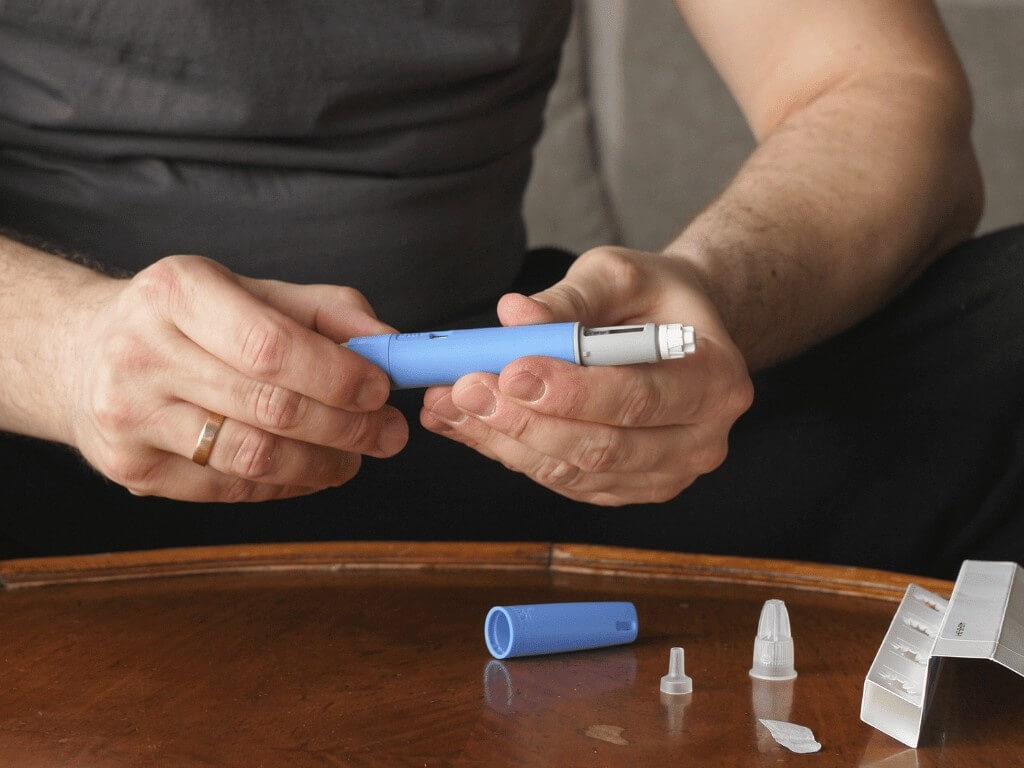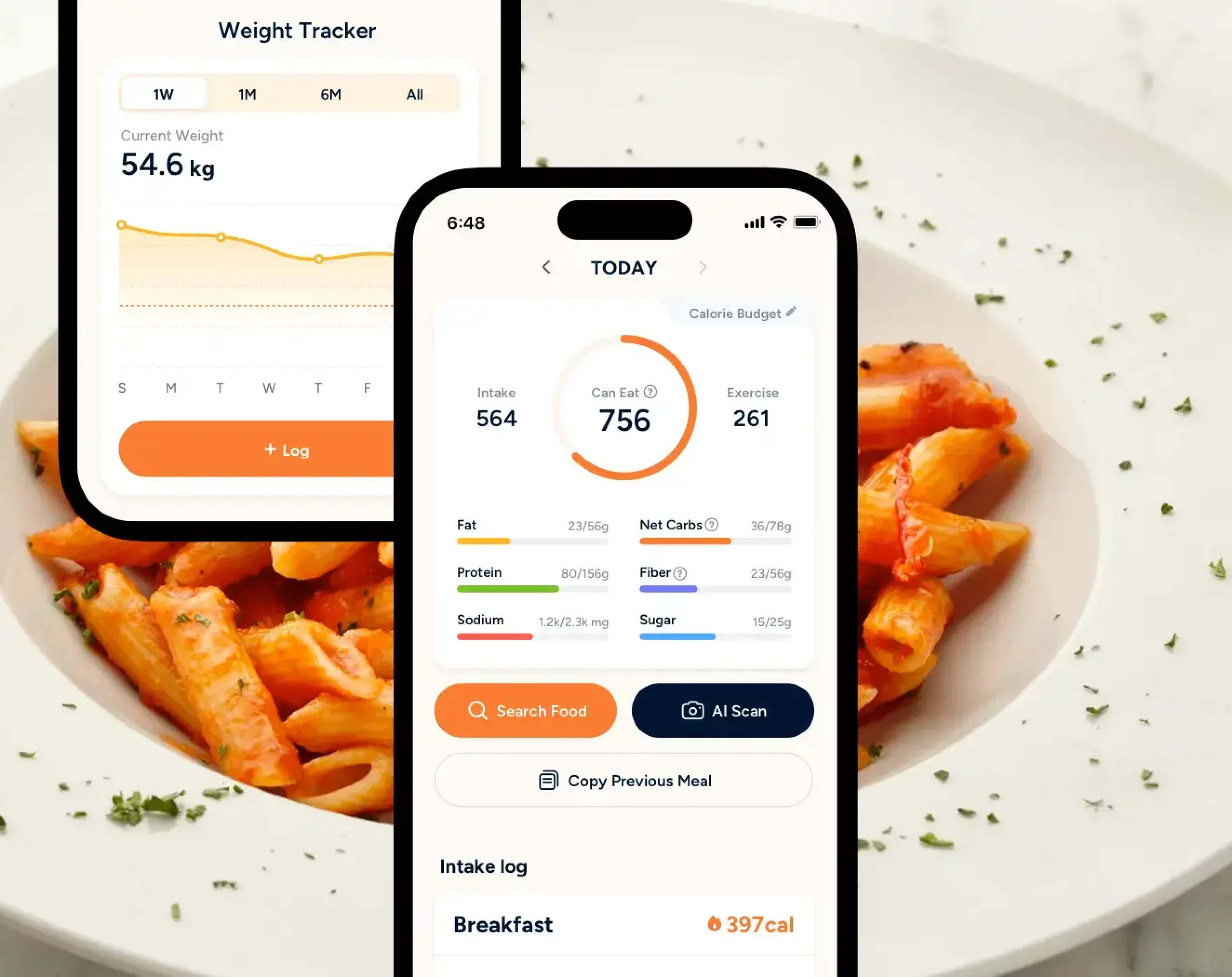Similar to Ozempic, Mounjaro (Tirzepatide), once only known for Type 2 diabetes management, has emerged as a medication for weight management. However, Mounjaro injections are markedly expensive ($350-$800) and have varying insurance coverage, which makes understanding its financial implications crucial for those considering using Mounjaro as a weight loss method. In this guide, we will break down the details surrounding the use of Mounjaro, as well as how much does Mounjaro cost without insurance, coverage options, and general accessibility.
Key Takeaways
- Mounjaro is a once-weekly injectable medication that helps regulate blood sugar and appetite by activating GLP-1 and GIP pathways.
- Mounjaro can reduce appetite, slow gastric emptying, and influence hunger-related hormones.
- Without insurance, Mounjaro can cost over $1,000 per fill. Coverage varies, and manufacturer savings programs or Medicare payment plans may reduce out-of-pocket costs for eligible patients.
- Generally considered safe for approved uses, common side effects include nausea, diarrhea, and appetite loss.
- Lifestyle interventions, such as a balanced diet and regular physical activity, remain essential.
What is Mounjaro?

Mounjaro is a once-weekly injectable medication containing tirzepatide, prescribed for patients with Type 2 diabetes. The medication is manufactured by Eli Lilly and Company and comes in a single-dose pen [1].
The main purpose of using Mounjaro is to help diabetic individuals regulate or lower blood sugar levels and decrease appetite levels by activating GIP (glucose-dependent insulinotropic polypeptide) and GLP-1 (glucagon-like peptide-1) pathways.
How Mounjaro Helps With Weight Loss
Although Mounjaro is more well-known for its weight loss effects than for Type 2 Diabetes management in 2025, it is not a weight loss drug and has been primarily approved for the latter. Albeit certain health institutions have approved it as a weight loss drug (e.g., National Institute for Health and Care Excellence (NICE) in the UK) for managing obesity alongside diet and exercise [2].
Mounjaro has several mechanisms that contribute to weight reduction, which include:
- Appetite suppression: Mounjaro slows gastric emptying, which means food stays in the stomach longer, leading to increased feelings of fullness and reduced appetite. This naturally leads to a decrease in caloric intake.
- Blood sugar control: By improving insulin sensitivity and reducing blood glucose levels, Mounjaro helps regulate the body’s metabolic processes, which can contribute to weight loss.
- Hormonal effects: The medication affects hormones that control hunger and satiety, including GLP-1 and GIP, which signal the brain to reduce food intake and increase feelings of fullness.
Various clinical studies have also shown that taking mounjaro or tirzepatide can help to significantly reduce weight for patients with type 2 diabetes and obesity [3], [4]. However, it’s worth noting that Mounjaro is neither approved by the FDA nor Eli Lilly and Company specifically for weight loss in non-diabetic individuals.

Weight Loss Has Never Been Easier
Get accurate nutrition info instantly. Keep track of your progress.
Download Eato For FreeHow Much Does Mounjaro Cost Without Insurance?
Costing anywhere from $1000-$1200 a month, the FDA-approved diabetes medication can be rather costly without insurance. This rakes up to around $12,000 a year if you are paying it out of pocket without insurance. However, there are multiple factors that affect the cost of Mounjaro.
Here’s a look at some of the factors that affect the cost of Mounjaro:
- Pharmacy location: Different pharmacies may have varying pricing structures, with some offering slight discounts or different markup rates.
- Dosage strength: Mounjaro comes in multiple dosage strengths (2.5mg, 5mg, 7.5mg, 10mg, 12.5mg, and 15mg), and higher doses may cost more.
- Discount programs: Some pharmacies offer discount programs or membership benefits that can reduce the cash price.
How Much Does Mounjaro Cost With Insurance?
Insurance coverage for Mounjaro varies significantly depending on your specific plan and whether you’re using it for its approved indication (type 2 diabetes) or off-label for weight loss.
Take a look at your health plan’s formulary and requirements before you dive in and purchase a whole year’s worth of Mounjaro. Although Mounjaro is FDA-approved, it is only the case for use for Type 2 Diabetes, but not for weight loss. What this means is that you might be able to receive coverage for Mounjaro to treat your Type 2 Diabetes, but not for weight loss.
That being said, it is best to consider requesting prior authorization before doing anything drastic with Mounjaro.
Can You Get Mounjaro for Free?
While getting Mounjaro completely free can be challenging, the company that manufactures it offers a Mounjaro Savings Card Program.

If you are eligible, you may pay as little as $25 for a 1-month or 3-month prescription of Mounjaro or up to 4-12 pens at a time. This manufacturer savings program is only available to eligible patients with a commercial drug insurance plan. It is not eligible for patients who are enrolled in a state, federal, or government-funded healthcare program (e.g., Medicaid, Medicare, Medicare Part D, Medicare Advantage).
Additionally, patients who would like to qualify for this savings program must be residents of the United States or Puerto Rico, and ensure that they are 18 years or older in age.
Those with an existing Medicare drug plan or Medicare Advantage plan with drug coverage may opt to enroll for the Medicare Prescription Payment Plan (M3P) and pay for out-of-pocket prescription costs over time instead [5].
How to Get Mounjaro for Weight Loss
As mentioned above, Mounjaro is not FDA-approved specifically for weight loss, but some healthcare providers may still prescribe it off-label for this purpose. However, patients typically require a BMI of 30 or higher (or 27 with weight-related health conditions) for a Mounjaro prescription.
Here’s how to approach getting Mounjaro for weight loss:
Step 1: Consult your healthcare provider
Start with your primary care physician or endocrinologist. They can evaluate whether Mounjaro is appropriate for your situation and health profile.
Can I use telehealth for Mounjaro?
Some telehealth platforms specialize in weight management and may prescribe Mounjaro for weight loss. These services typically charge high consultation fees as well as medication delivery fees and may not accept insurance.
Step 2: Medical evaluation
Your doctor will likely require a comprehensive medical evaluation, including blood work, assessment of other health conditions, and discussion of previous weight loss attempts.
Your doctor may refer you to an endocrinologist or obesity medicine specialist who could advise you better on whether you can get started on Mounjaro treatment.

Weight Loss Has Never Been Easier
Get accurate nutrition info instantly. Keep track of your progress.
Download Eato For FreeIs Mounjaro Safe?
Mounjaro has been extensively studied and is generally considered safe for its approved uses when prescribed and monitored by a healthcare provider. However, like all medications, it carries certain risks and considerations:
- Clinical trial data: Mounjaro has undergone rigorous clinical trials demonstrating its safety and efficacy for type 2 diabetes treatment. The medication received FDA approval based on comprehensive safety data.
- Monitoring requirements: Regular monitoring by healthcare providers is essential, including blood sugar levels, kidney function, and overall health assessments.
- Drug interactions: Mounjaro can interact with other medications, particularly those for diabetes. Your healthcare provider will need to adjust other medications as needed.
- Contraindications: Mounjaro is not suitable for everyone. People with certain medical conditions, including a history of medullary thyroid carcinoma or multiple endocrine neoplasia syndrome type 2, should not take this medication.
Side effects of Mounjaro

Like all medications, Mounjaro can cause side effects. The most common side effects include nausea, diarrhea, and appetite loss. These gastrointestinal effects are typically mild and often improve over time as the body adjusts to the medication.
Other reported side effects of Mounjaro include:
- Constipation
- Stomach pain
- Heartburn
- Low blood sugar
- Vision changes
In rare but serious cases, Mounjaro could lead to possible thyroid cancer, pancreatitis, gallbladder problems, severe allergy, kidney problems, and diabetic retinopathy complications.
- Gallbladder problems
- Severe allergic reactions
- Kidney problems
- Diabetic retinopathy complications
Patients should stop using Mounjaro and call their healthcare provider right away if they have severe pain in their stomach area (abdomen) that will not go away, with or without vomiting.
Who should not take Mounjaro?
Certain individuals who should avoid Mounjaro due to safety concerns include:
- People with medical contraindications
- Personal or family history of thyroid problems
- Pregnant women and women who are breastfeeding
- Patients with severe kidney disease
- Individuals with a known allergic reaction to tirzepatide
- People with severe stomach problems (e.g., gastroparesis)
Mounjaro Alternatives
For those who cannot access or afford Mounjaro for weight loss, there are several alternatives that exist. For example, Ozempic (semaglutide), Wegovy (semaglutide for weight loss), and Trulicity (dulaglutide) work similarly to Mounjaro and may be more accessible or affordable, especially for those who do not plan to claim insurance from ti.
In the case of advanced obesity cases, bariatric surgery could be a possible consideration if eligible.
Aside from these, the best way is still to maintain a healthy, balanced diet and stay physically active. It’s considered the fundamental approach to managing diabetes and weight loss in general.
Final Takeaway: Is Mounjaro Right For You?
Determining whether Mounjaro is right for you requires careful consideration of multiple factors. Before pursuing Mounjaro, explore all available cost-reduction options, and work closely with your healthcare provider to determine if Mounjaro aligns with your health goals, medical history and financial situation.
Otherwise, you can always consider natural alternatives, such as the Eato app, to keep track of your nutrition and receive personalized health plans to reach your weight goals. Try it today for free!

Smarter Nutrition Tracking
Track calories and over 100 other nutrients all in one place.
Download Eato For Free



